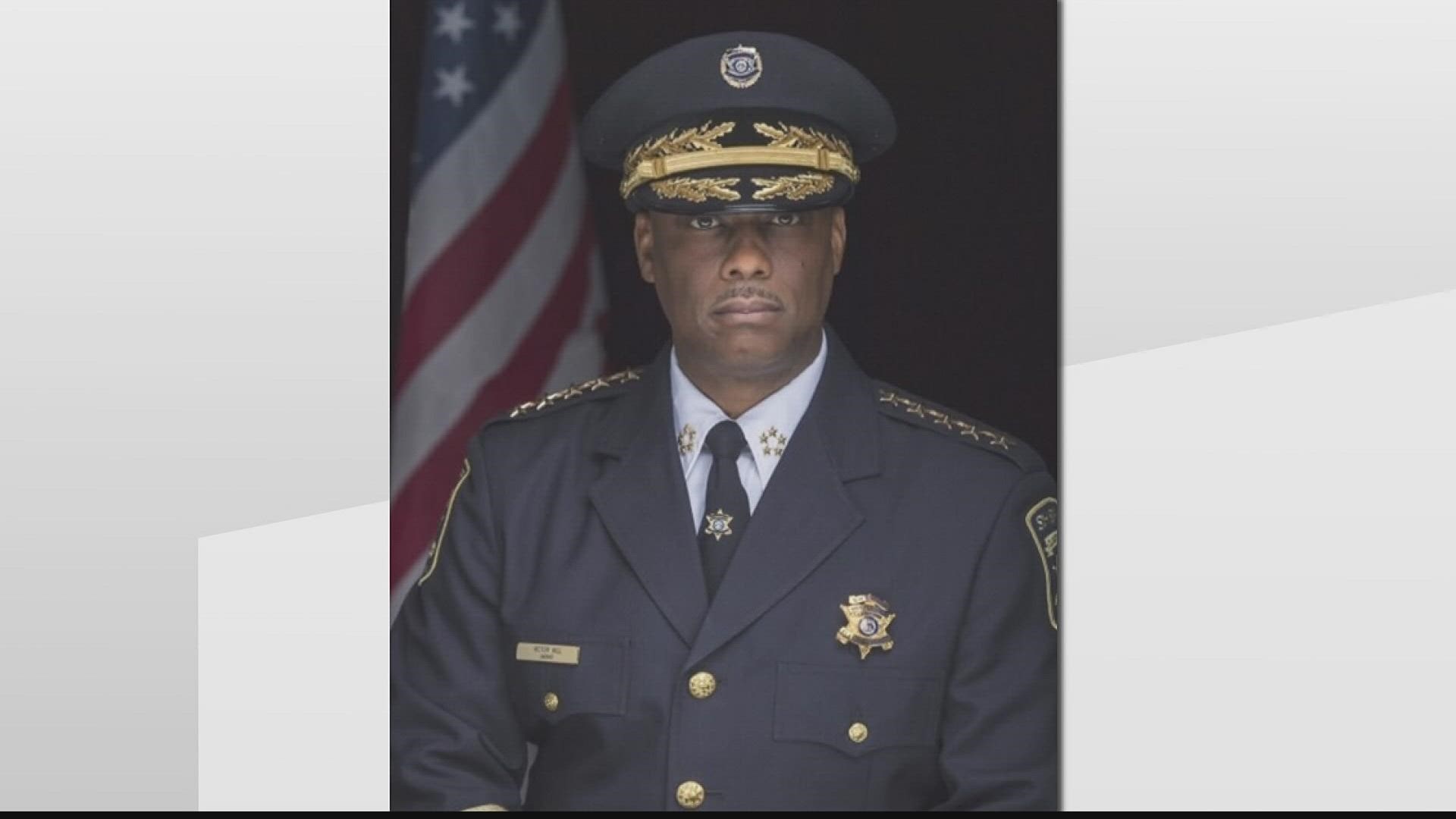ATLANTA — U.S. District Judge Eleanor Ross signaled Thursday she intends to keep the trial against suspended Clayton County Sheriff Victor Hill, which begins in about two weeks, "tightly reined in."
Hill is accused by the government of violating the civil rights of pretrial detainees at the Clayton County Jail in seven specific instances - primarily through the use of excessive force in utilizing a restraint chair.
The trial, Judge Ross indicated, will be kept focused on those accusations and the circumstances around them.
What she intends, she made clear, is to keep it from mushrooming into a trial about the myth of Hill - and whether his larger-than-life persona as a self-styled "Batman" crimefighter justifies him as a community pillar in Clayton County or makes him an above-the-law vigilante.
Hill was in court, along with his attorneys and those from the government, on Thursday as they conducted a final pretrial conference about which lines of argument and what kinds of evidence will be allowed in the trial.
Jury selection will begin on Oct. 12, with the hope the trial can begin in full on Oct. 13. Hill was first indicted last year, and later suspended by Gov. Brian Kemp pending the trial's outcome. He also faces a lawsuit over his detention practices.
The government indicated they would paint a picture of the restraint chair as a reckless and abusive tactic used upon intake at the jail against people - in one case a detainee as young as 17 - who had not yet been convicted of anything.
Defense attorneys signaled they would argue Hill's practices were about "setting the tone" at the jail from the moment detainees arrived - describing intake as a process where violence is likely to break out as individuals being jailed try to see what they can get away with.
Both Hill's lawyers (see their filing here) and those for the government (their filing here) on Thursday presented what they'd like to be excluded from the trial.
The government filed to exclude several evidentiary subjects or lines of argument:
- insinuations that the government pursued this prosecution for an improper purpose, that this is a novel theory of prosecution, that Hill’s misconduct is minor compared to other law enforcement misconduct, or that the government could have addressed Hill’s misconduct through a civil suit or other remedies short of criminal prosecution;
- implications that Hill’s previous good acts, accolades, commendations, or accomplishments excuse Hill’s misconduct
- suggestions that Hill’s suspension from office has negatively impacted the community or that his conviction in this case would do so;
- suggestions that the victims’ past or subsequent misconduct or bad acts justify Hill’s unrelated infliction of harm to the victims;
- suggestions that unrelated incidents of violence in the jail justify Hill’s abusive law enforcement practices; and/or
- arguments that Hill’s suspension from office should satisfy the need for justice in this case or other discussions of the potential penalties Hill faces if convicted.
Judge Ross granted the government's motion to exclude on the first, third and sixth points. She largely granted the second point, though she didn't wanted it to preempt any positive offhand testimony about Hill from witnesses; granted the fourth, though allowed that the defense may talk about the detainees' past behavior at the jail if they were previously there; and partly granted the fifth, though said she wanted to give the defense "leeway" to describe the jail environment generally.
Hill's lawyers, meanwhile, filed for seven exceptions:
- other uses of force that have allegedly occurred in the Clayton County Jail;
- other evidence of conditions and procedures of confinement at the jail;
- any lawsuit, suspension or other indictment involving Sheriff Hill;
- allegations of retaliation against employees;
- insinuations about obstructing the investigation related to the production of documents and videos;
- the strength or legality of the arrests of the detainees or criminal cases against them;
- any improper personal/character evidence of Sheriff Hill
Judge Ross granted those exclusions, with the most notable argument on any of them relating to the idea of a retaliatory environment for jail employees.
Raising whether deputies or jailers participated in illegal practices out of "fear" of Hill, the judge said, would be to expand the scope of the trial too far - essentially, opening the door for proceedings to turn into a he-said-she-said about the sheriff's character.
Jurors might want to know why jail employees did this or that, she acknowledged, but said the government would have to limit their argument to merely whether employees did certain things on Hill's orders.
"This is not the trial for that," Judge Ross said of the "why."
Hill has pleaded not guilty in the case.

